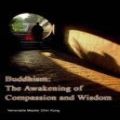Chapter One: Introduction
Chapter One: Introduction It is necessary for us to a have correct understanding before practicing Buddhism; otherwise, all the time spent in cultivation will be futile, as the most superior result will not be attained. Therefore, I would like to briefly explain the true nature of Buddhism.
Chinese history tells us that about three thousand years ago, Buddha Shakyamuni, the founder of Buddhism was born in Northern India. He lived seventy-nine years and dedicated forty-nine of them to teaching. In 67 AD, one thousand years after he entered Nirvana, these teachings were formally introduced into China.
Prior to acquiring a good knowledge of Buddhism, we need to understand the terms Buddha, Dharma, Buddhist Dharma and Buddhist teaching, as they are important to our cultivation. Buddha is a Sanskrit word, meaning "wisdom and enlightenment". Why was it transliterated as Buddha and not translated into wisdom and enlightenment? The meaning of "Buddha" is so profound and extensive that these two words were insufficient to cover the original meaning. Therefore, transliteration was used with further explanations.
In essence, Buddha means wisdom. In application or function, it means enlightenment. There are three levels of wisdom. First, "General and All Knowledge Wisdom" is the correct understanding of the noumena, or essence, of the universe. It is the wisdom of knowing the general aspect of all existences, the wisdom of Theravada sages. Second, "Differentiation Wisdom" is the wisdom that can correctly comprehend all the infinite phenomena of the universe, the wisdom of knowing the discriminative aspect of all existences, the wisdom of Bodhisattvas. How did these phenomena arise? From where? In what way? What were their results? Third, "Overall and Perfect Knowledge Wisdom" is the exhaustive and perfect perception and comprehension of the truth of life and the universe without the slightest doubt or error, the wisdom of Buddhas. Buddha Shakyamuni, possessing all three of these kinds of wisdom, completely understood the true reality of life and the universe.
The function of wisdom is enlightenment. There are three classifications of enlightenment. First is "self-enlightenment", a state in which one possesses no erroneous thoughts, views, speech or behavior. Arhats and Pratyekabuddhas in Theravada Buddhism have attained this level of self-enlightenment, but have not yet generated the Bodhi mind to help others achieve enlightenment. Second, is "enlightenment of self and others", a state in which one helps others to reach enlightenment after achieving his or her own. Bodhisattvas in Mahayana Buddhism have attained this level. Third is "Perfect Complete Enlightenment", a state in which one reaches perfection in both enlightenment for self as well as helping others to reach enlightenment. This is the state of Buddhas.
The Buddha told us that this perfect wisdom and virtue are innate to all beings. The sutras, recorded teachings of the Buddha, tell us that "all sentient beings can attain Buddhahood." and "every being possesses the wisdom and virtuous character of the Buddha". In other words, all beings are equal to Buddhas in nature. However, due to our discriminating and wandering thoughts and attachments, which are the root cause of all sufferings and disasters, we have temporarily lost our original Buddha nature. Thus, we continue being born into the endless cycle of birth and death.
The more we rid ourselves of these wandering thoughts and attachments, the more we will experience freedom from suffering, and the more wisdom and enlightenment we will uncover. Once we completely free ourselves from discriminating and wandering thoughts and attachments, our fixations to certain ideas or objects, we will regain our lost Buddhahood; our original perfect enlightened state, our self-nature Buddha.
Possessing great wisdom and enlightenment enables us to truly know all that exists and all that is infinite. This includes matters and objects as tiny as a speck of dust or the finest hair on the human body, to those as great as the infinite universe. All of these are the objects of our perception, or wisdom and enlightenment.
The Buddha used the word Dharma to symbolize all these infinite phenomena. Buddhist Dharma or Principle, is the infinite wisdom and enlightenment, the perception of all things and laws in life and the universe. Chinese people often say that Buddhist Dharma is as infinite as the object perceived is infinite and the wisdom perceivable is infinite. This wisdom is innate to our self-nature.
The Buddha said, "Our innate perception and the objects in the universe perceived are ONE not TWO." When we think about it logically, if the Buddha's words are complete and perfect, then we can believe that this wisdom and enlightenment are ultimate and perfect. However, if perceived and perceivable are opposites, then wisdom can hardly be complete and perfect, but rather it is limited.
The Buddha told us that knowable and known, perceivable and perceived are ONE not TWO. This is called the One True Dharma Realm, the most genuine, perfect and highest realm as explained to us in the "Flower Adornment Sutra." The Western Pure Land of the Pure Land School also belongs to and is not separate from the One True Dharma Realm. This Western Pure Land, was created by Buddha Amitabha as an ideal place of cultivation as those who are born there are no longer subject to reincarnation within the six realms.
In 1923, a well-known Buddhist scholar, Mr. Jing-Wu Ou-Yang gave a speech at Nanjing Normal University in China, entitled "Buddhism is Neither a Religion Nor a Philosophy, but the Essential for Our Modern Time." It caused considerable sensation. His well-documented speech gave much conclusive support to the proper definition and viewpoint of Buddhism.

